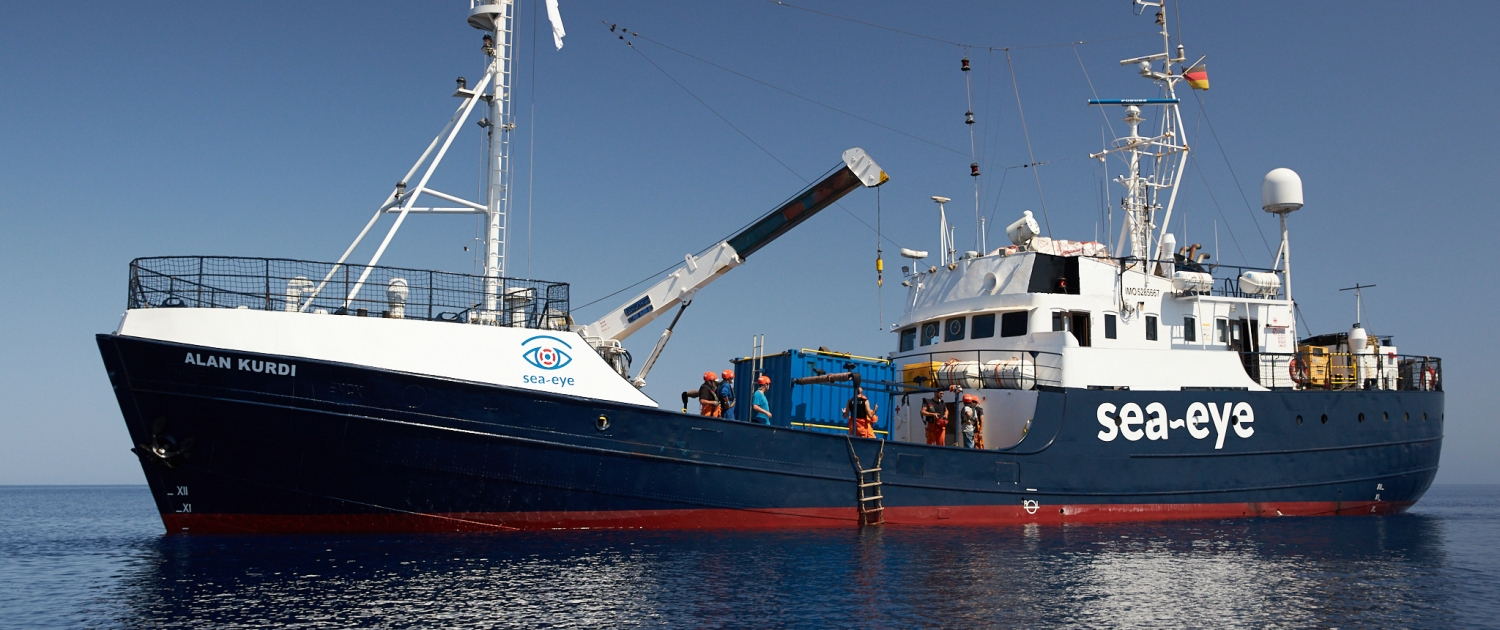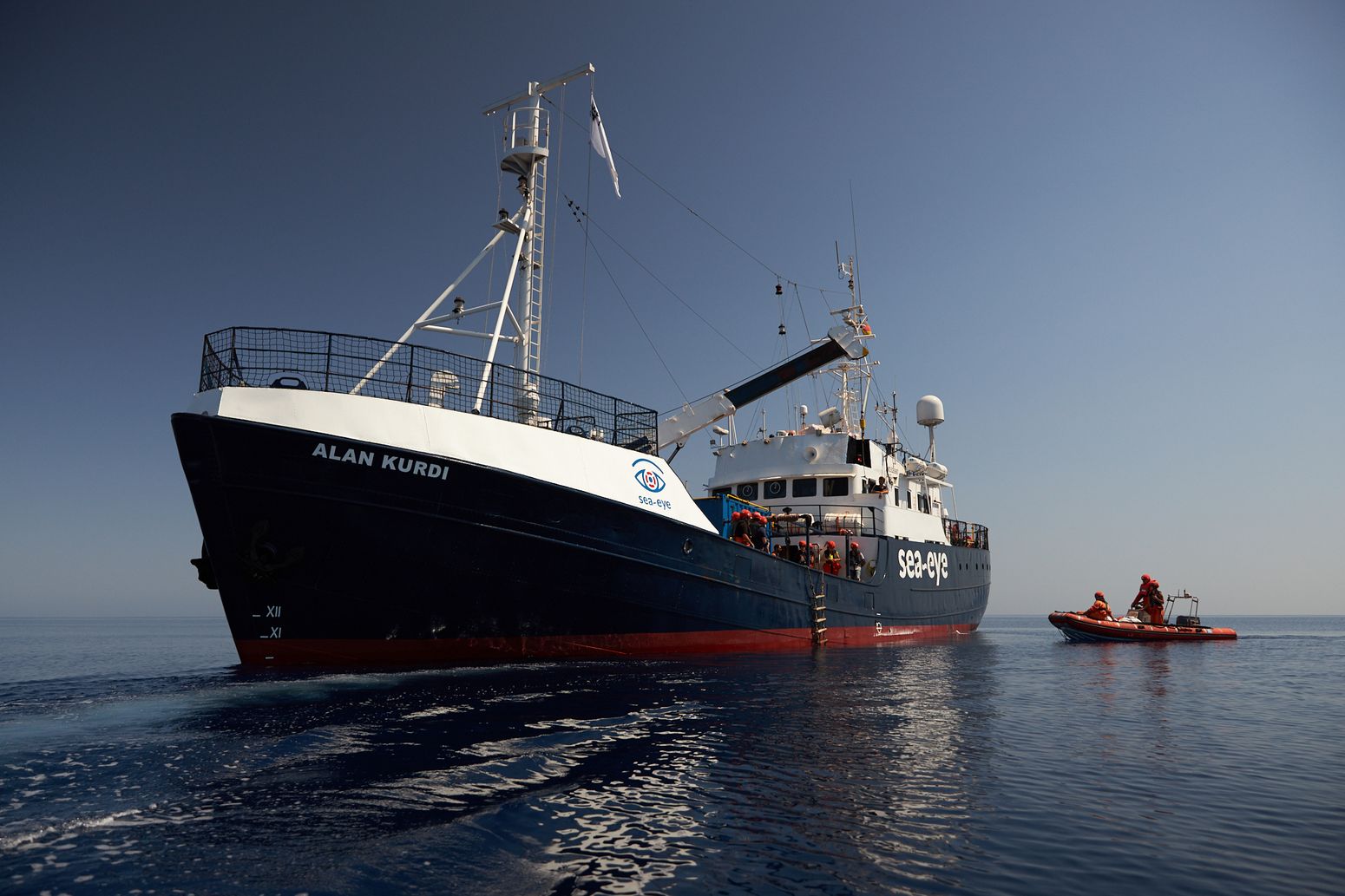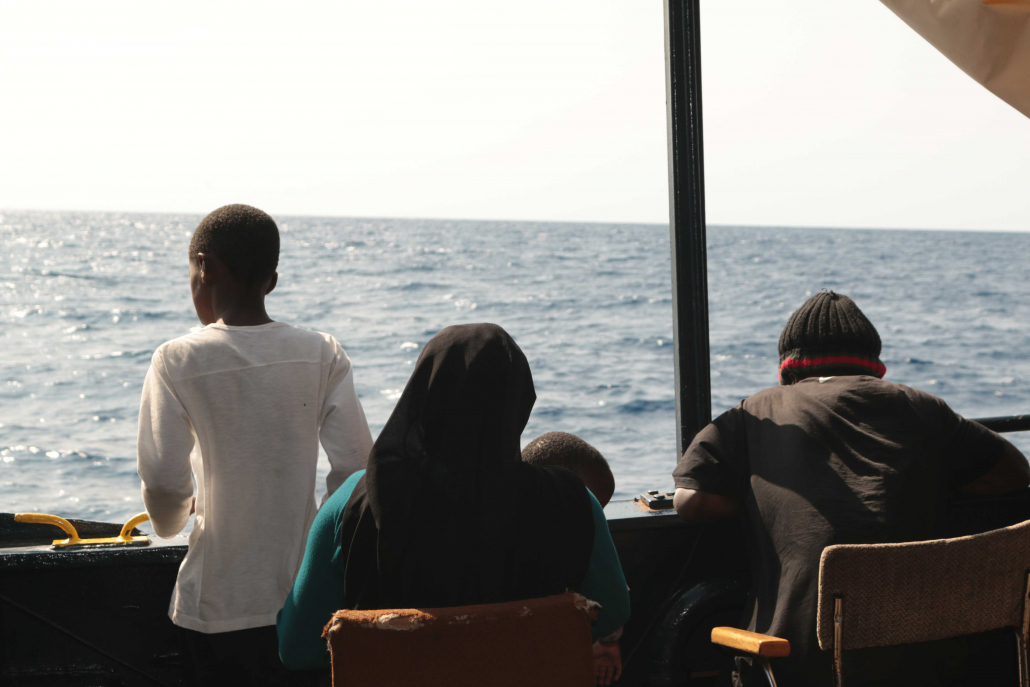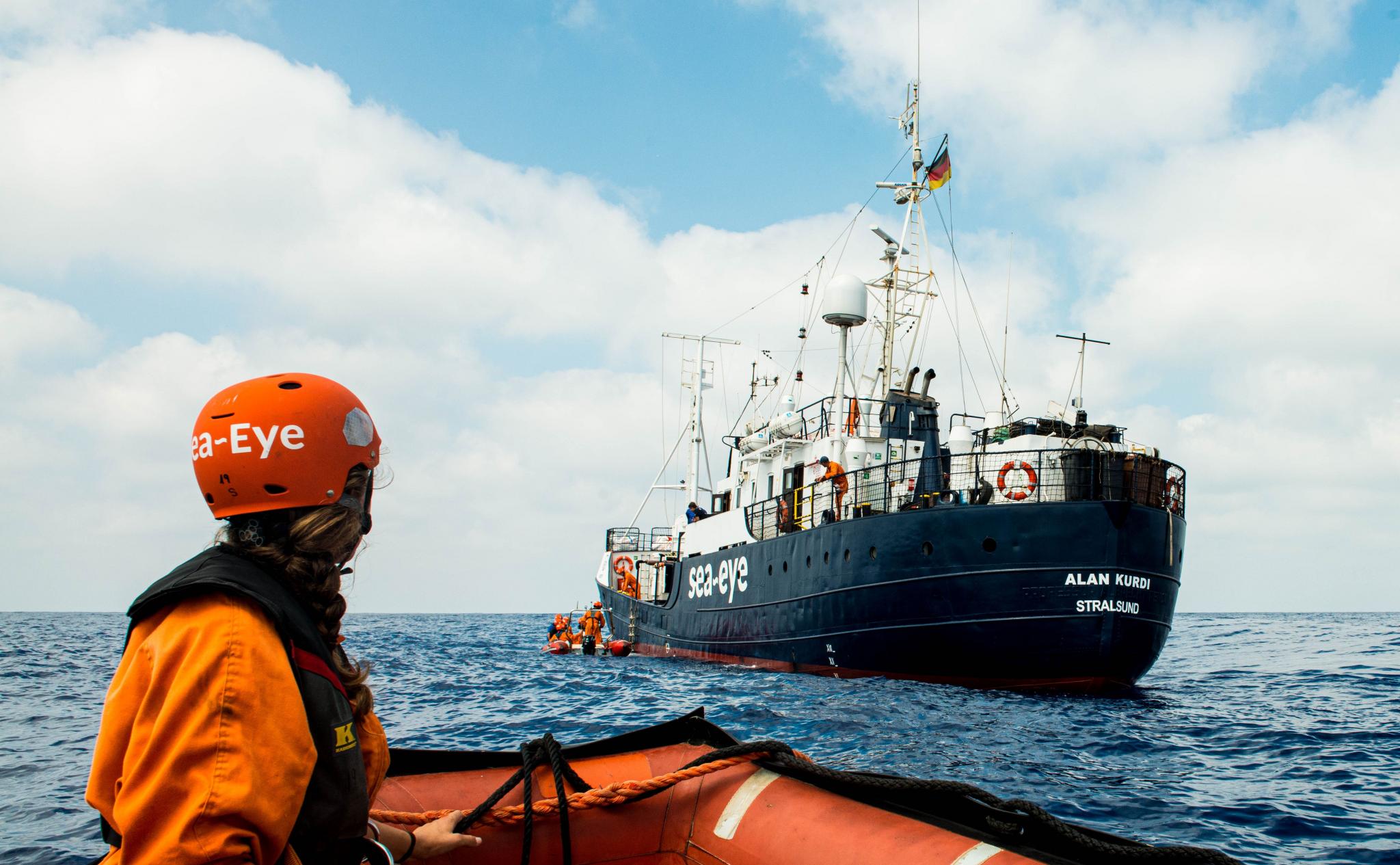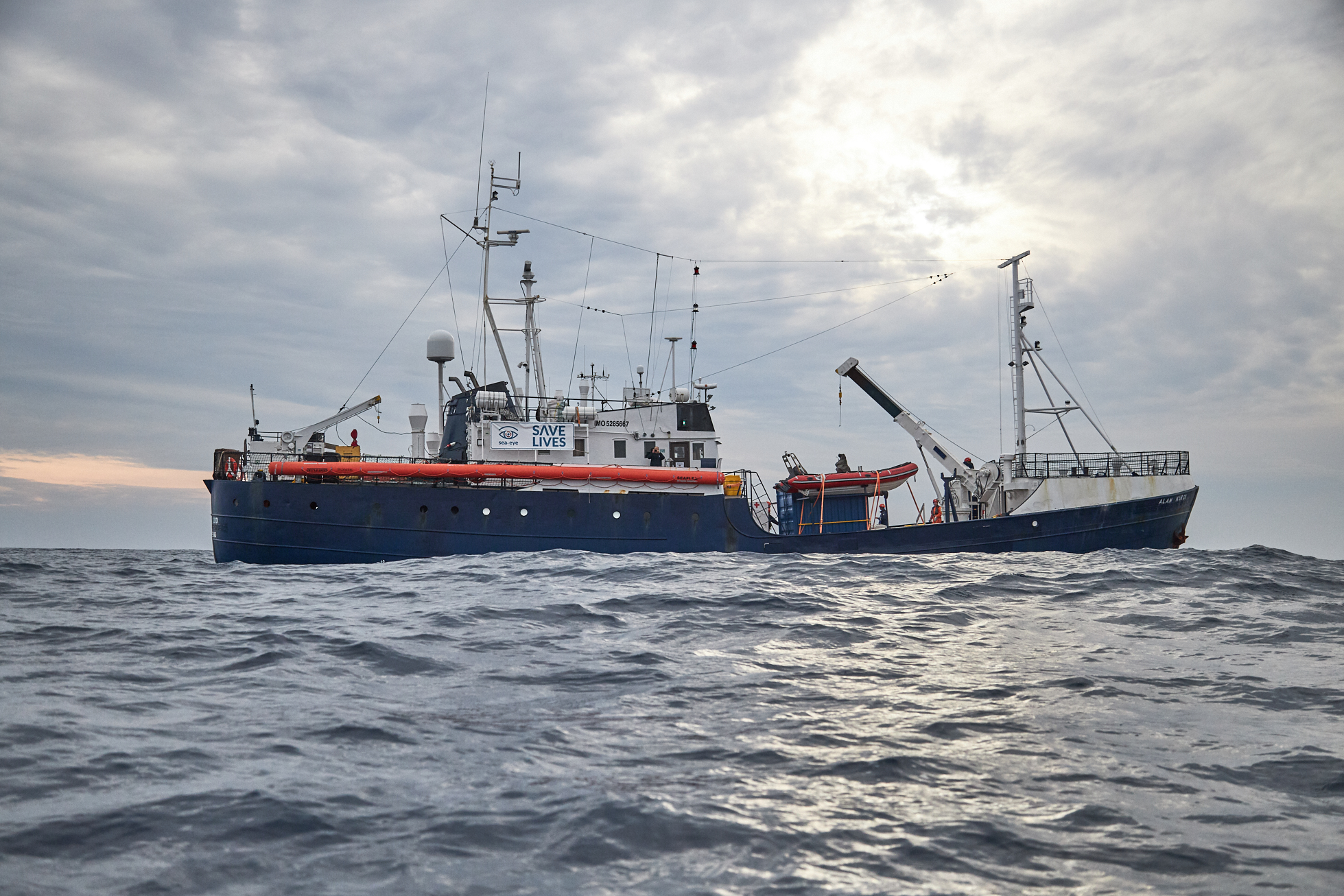After our previous rescue ships had their Dutch flag withdrawn summer of 2018 under political pressure, we took a ground-breaking step forward. In the following autumn, we acquired the 38 m long former research vessel PROFESSOR ALBRECHT PENCK (built in 1951) in Stralsund. The PROFESSOR ALBRECHT PENCK was sent out into the Mediterranean as a rescue ship in December 2018.
Even though the European Union turned a blind eye to the catastrophic human rights situation in the Mediterranean, we still observed numerous maritime emergencies and fatalities at Europe’s borders.
Half a year after politics rendered the operations of our previous rescue ships impossible, our new ship rescued people from an overloaded fishing boat shortly after Christmas 2018.
In 2018, European politicians focussed on attacking civil sea rescuers, human rights in the Mediterranean and thus also their own ideals to unprecedented extents. Instead of discussing human rights and equality, Europe discussed flags and ship approvals.
At the beginning of 2019, Sea-Eye decided to set an example and remind European policymakers and the public what the European Union’s closed borders policy means to every single dead person’s relatives. To that end, Sea-Eye reminded us of an individual tale symbolic of the many fates on the Mediterranean – that of the Kurdi family.
Abdullah Kurdi, his wife Rehanna Kurdi and his two sons Ghalib and Alan fled Turkey in 2015. Together with many other refugees. Their destination was Greece. There they hoped to find safety and protection by the European Union. When their boat sank, almost the entire family drowned. Only the father survived.
A reporter found the body of young Alan. He was dressed in a red t-shirt and blue trousers, with his face in the sand on a Turkish beach. The photo of little Alan went around the world, showing an individual death brought about by Europe’s closed borders policy.
On 10 February 2019, Abdullah Kurdi baptised the rescue ship in the port of Palma de Mallorca in the name of his youngest son. The ship’s name was a reminder of what really matters: Saving human lives.
At the same time, however, this name also demanded of the European states to abandon their isolationist policy and to protect the human rights of the refugees without reserveations.
In July 2021, Sea-Eye finally had to part with the ALAN KURDI with a heavy heart and cease operations with this vessel. As the ongoing detentions of the rescue ships in Italy put a heavy financial burden on Sea-Eye, the ALAN KURDI had to be sold. Since then, Sea-Eye has focused on rescue missions with the SEA-EYE 4.
The ALAN KURDI was able to rescue 927 people from distress at sea in 12 missions. The Italian organization RESQ will continue the rescue operations. The ship is now called ”RESQ PEOPLE”.

